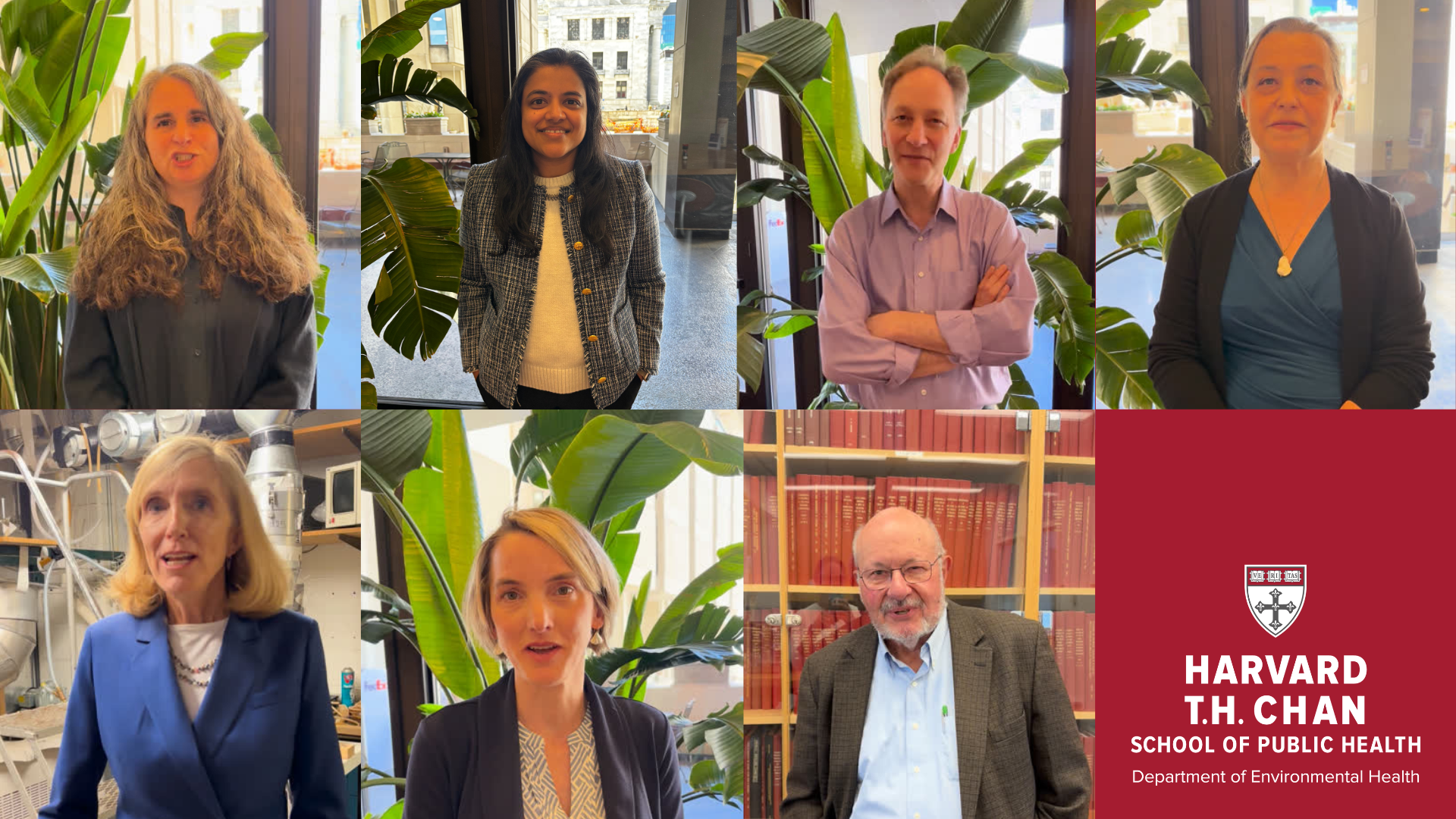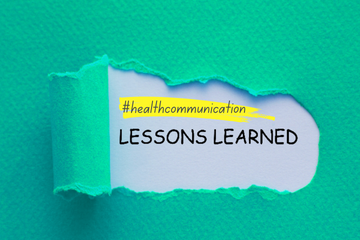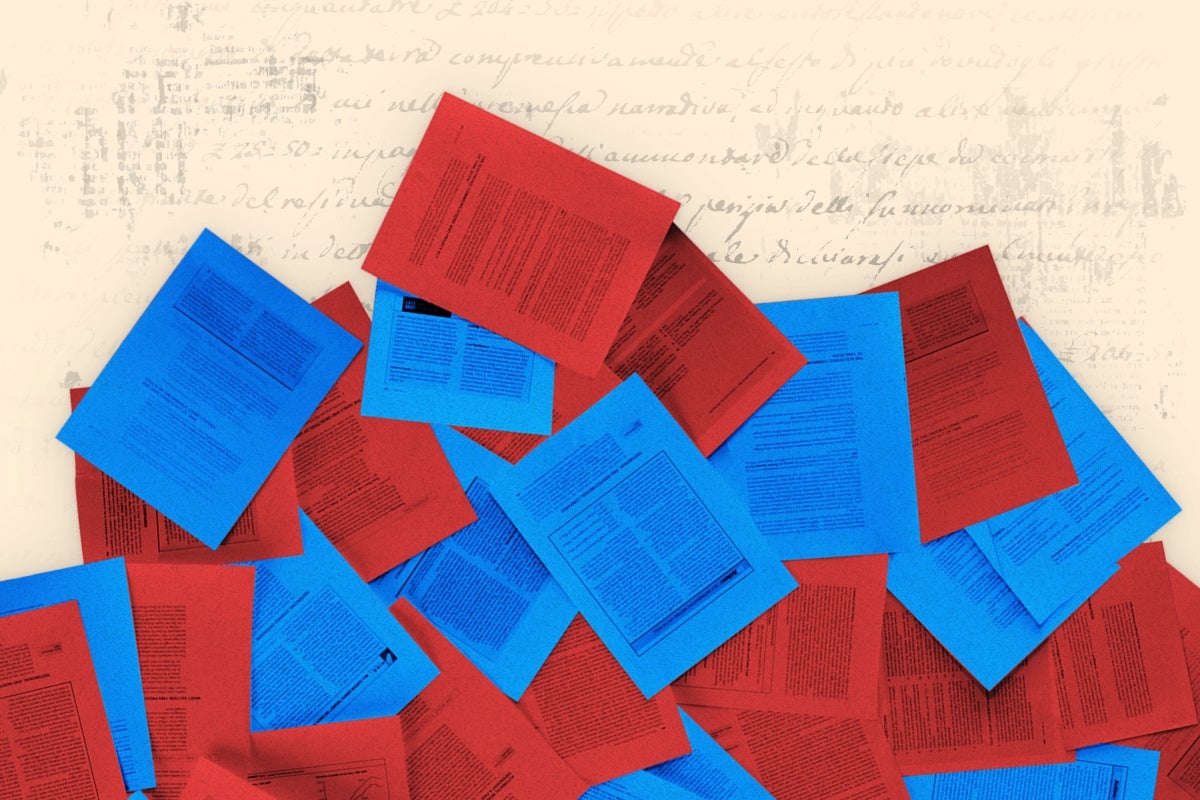Researchers at Harvard Chan join forces with leading universities for new “Environmental Health Works” video campaign

Researchers explain why their research to uncover environmental threats matters while offering practical information on how we can safeguard our health.
In a new collaborative video series launching today in celebration of Earth Day, environmental health scientists from leading universities across the country speak about the work they do to expose the invisible threats in our environment—from the air we breathe to the products we use—and offer practical tips on how we can protect ourselves.
The series kicks off with a short introductory video featuring Dr. Kari Nadeau, chair of the Department of Environmental Health at Harvard T.H. Chan School of Public Health, along with environmental health chairs from to Boston University, Columbia, Johns Hopkins, the University of Michigan, University of North Carolina, and the University of Washington, who explain—in plain language—why environmental health science is vital for all our lives.
Beginning today and over the coming weeks, additional videos will provide practical insights relevant to everyone’s health. They will also showcase scientists and students in action, collaborating with communities to turn research into real-world solutions.
“Many of the things that we take for granted as we wake up each day — clean, running water, clear air, safe food and drinks, and even safe schools and working environments — are thanks to the tireless work of environmental health researchers over the last century,” shared Dr. Kari Nadeau, chair of the Department of Environmental Health at Harvard T.H. Chan School of Public Health. “We want to highlight these findings and the ongoing research and education to understand new threats to our health from the environment as well as solutions.
Watch all of Harvard’s #EHworks videos on the Department’s Youtube Channel here.
In the initial round of videos, researchers and students describe connections between the environment and our health. Scientists discuss the role of green spaces to address the heat island effect in cities, and the importance of preventing toxic exposures during pregnancy to protect children’s health. They also talk about the impact of climate exposures on allergies and kidney disease and how reducing pollution is key to cancer prevention.
Dr. Mary Rice, Mark and Catherine Winkler Associate Professor of Environmental Respiratory Health, and the Director of the Harvard Chan Center for Climate, Health, and the Global Environment, is featured in one of the videos discussing her work on COPD and air pollution.
“Our research is looking for solutions to big problems that impact everyone’s health, like climate threats, wildfires, and air pollution,” shares Dr. Rice. “This research is vital to creating healthy and safe environments where everyone can live, work, and play.”
“People deserve to know how their surroundings affect their health and what they can do about it,” says Jonathan Levy, ScD, chair of Environmental Health at Boston University School of Public Health and one of the lead organizers of the campaign. “Environmental health research can give people the information they need to protect themselves and their families and to advocate for policies that keep people healthy.”
From wildfire smoke to “forever chemicals” in drinking water, environmental hazards are increasingly making headlines. Yet many Americans remain unaware of how scientists work in the laboratory, at the computer, in the field, and in collaboration with community partners to identify these health risks and develop ways to prevent illness and protect health.
The Environmental Health Works series aims to:
- Demystify science by showing the faces and stories behind the research.
- Connect the dots between environmental exposures like pollution or toxic chemicals and illnesses like asthma or cancer.
- Inspire action with practical steps to reduce risks at home and in communities.
You can watch all videos from participating universities here.
“Knowledge is power,” says Ana Navas-Acien, MD, PhD chair of Environmental Health Sciences at Columbia University’s Mailman School of Public Health. “When science shines a light on hidden risks—like toxic chemicals in water or air—families can make informed choices to stay healthy, and our leaders are equipped to seek solutions that protect us all.”

